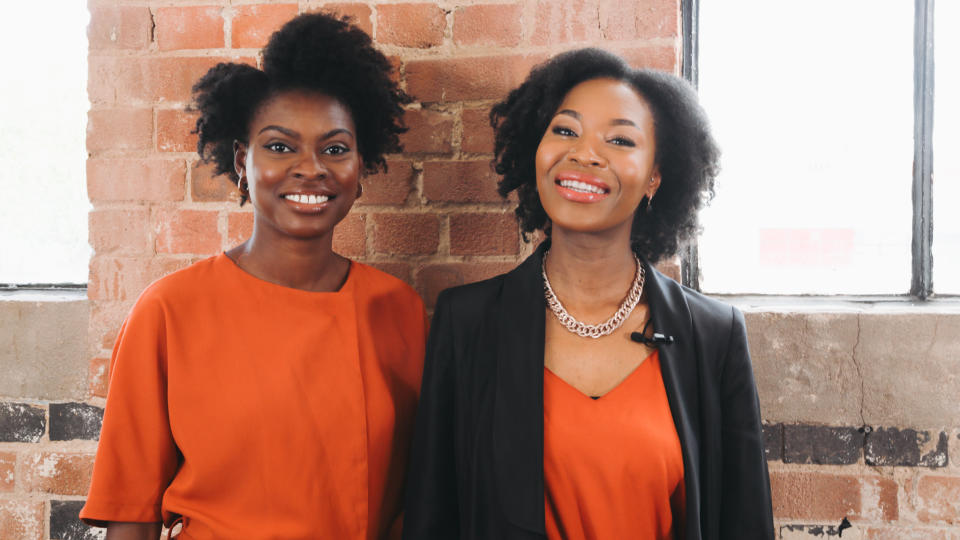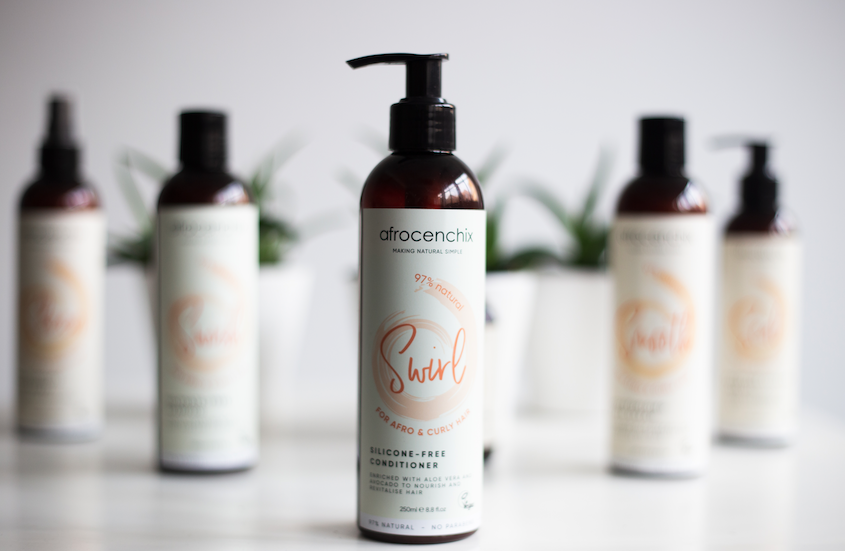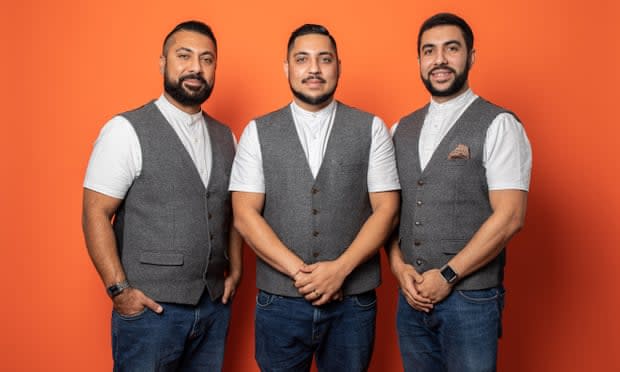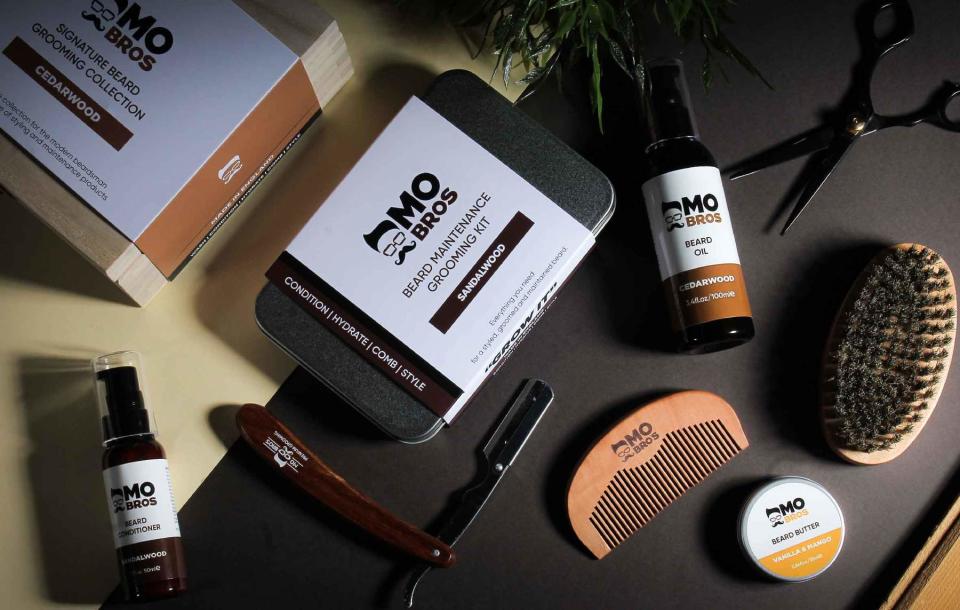Meet the community-first grooming businesses busy educating and empowering their customers

From educational online webinars to personalised messaging, these small businesses pivoted their offerings during lockdown - and thrived.
When the pandemic hit, grooming needs weren't a top priority - until customers realised they would be styling their own hair and beards for the foreseeable future.
Small business owners were suddenly forced to navigate uncharted waters, as they faced challenges from every direction. From supply to staffing issues, to ultimately having to close their salons, business owners truly faced the “unprecedented,” and did everything in their power in order to keep their businesses afloat and their staff secure.
By pivoting their offerings for consumers, engaging in a holistic approach to connect with their communities online and to educate their customer base on home hair care and skincare needs, some beauty businesses were even able to find success in the pandemic.
Many small businesses used lockdown to refocus their priorities, rally their communities and streamline their costs. We chat with the entrepreneurs behind two haircare and grooming businesses, who by putting their customers’ needs front and centre - even when they couldn’t connect with them face-to-face - experienced an upsurge in sales during the pandemic.

Afrocenchix: “We pivoted our approach… and instead we focused on how we could serve our community”
Founded by friends Joycelyn Mate and Rachael Twumasi-Corson while attending the University of Birmingham, Afrocenchix was born out of frustration at the lack of Afro hair products with natural ingredients that didn’t compromise health.
Joycelyn had traction alopecia hair loss as a result of poor styling; Rachael suffered from eczema so needed to tread carefully with her beauty and haircare choices. Joycelyn concocted a natural hair oil which didn’t cause Rachael to suffer an allergic reaction, and their business was born in 2010.
When Afrocenchix initially launched, the founders were still teenagers - and the website was very basic. It was only after seeing how effortless it was to sell T-shirts on eBay using PayPal that the entrepreneurs decided to integrate PayPal into their business, for its simplicity and “instant recognition” - key when people were stumbling onto the website and didn’t know the brand’s story.
“Because of the widely recognised PayPal brand, we were able to get some of that credibility that we hadn’t yet built ourselves and also offer a really easy, smooth checkout for our customers,” says Rachael.
In the space of 10 years, Afrocenchix has gone from “making 50 little bottles at university in our kitchen to selling over 28,000 bottles” and is now sold internationally, from Canada to South Africa. The business sells 90% of its products online and in 2017, became the first Afro hair brand to be stocked on the shelves of Whole Foods UK and in Holland & Barrett. The brand sells individual products as well as targeted sets offering solutions to common problems, like dry hair or wig-related scalp issues, which can be purchased on a subscription basis.
The founders were planning a host of events, new hires and product launches as part of Afrocenchix’s 10th anniversary celebrations when the pandemic hit. Events were cancelled, hires paused, and a planned retail deal for their products, worth approximately £100K, was put on hold.

To keep the business afloat, Joycelyn and Rachael quickly pivoted their approach - and cut costs where they could.
A large percentage of their brand’s customer base consists of fellow entrepreneurs, and they too were seeing their bottom lines impacted by the pandemic, so Joycelyn and Rachael decided to help fellow business owners by launching a community spotlight series, which highlighted these businesses in blog posts and newsletters.
“We found that when we sent those emails, people would actually buy our products as well as the products we advertised for others,” says Rachael.
The duo also decided to use their health and beauty training and haircare education as a platform that they put out for free, launching online webinars for their customers.
An unexpected bonus? The webinars led to an uptick in profits for Afrocenchix (one webinar they hosted led to a 33% conversion rate). No surprise then that the brand focus moving forward is on more customer-serving web tools, from the customer hair care quiz launched during lockdown that shows customers which products are right for them, to the on-site chat box the founders are working on in partnership with Google’s Startups for Black Founders program.
“With the webinars we’re able to reach more people, and to have a better relationship with our customers, so that’s been a really big positive,” says Joycelyn.
Rachael and Joycelyn’s top three tips for other small business owners:
● Keep your purpose and mission front of mind - have a North star that keeps you going in the direction you want to be moving towards
● Stay focused on your community and on serving their needs - if you look after your customer, they will look after you, too
● Direct-to-consumer interaction works: engage your consumers on your website using tools like chat boxes and virtual quizzes

Mo Bro’s: “It just goes to show that you need to have a contingency plan in place. Covid has highlighted that we need to refocus our efforts into what was already working… ecommerce”
Grooming company Mo Bro’s launched in November 2014 as the result of some friendly sibling rivalry between three brothers: Keval, Kunal and Savan Dattani. They were competing to see who could grow the best beard, and after less-than-stellar results from all three, they decided to launch a business dedicated to creating top-quality beard care and grooming products for men.
Since then, Mo Bro’s has doubled in size nearly every year, secured a £150k investment from an appearance on Dragon’s Den and boasts a 400,000-strong online community of “mo bro’s”. The company also engages in charitable work, including lockdown-specific initiatives like collecting and making PPE for the NHS and donating to food banks.
Once the pandemic hit, Mo Bro’s had various difficulties to contend with, from a drop in retail orders from the high street (pre-pandemic, the brothers were doing 40% of their business offline) to having to close the retail shop in Leicester.
From the get-go, Mo Bro’s decided to increase their marketing spend during lockdown, investing in everything from Facebook ads to marketplace keyword bidding, which proved fruitful when many of their competitors did the opposite and stopped advertising.
As a result, the brothers saw that shopping cart sizes started going up, as did units per customer; the brothers were seeing twice the amount of output for the same cost. All in all, Mo Bro’s saw a 500% upsurge in sales over lockdown. Demand for the brand was at its highest peak-pandemic, when people were growing and caring for their “lockdown beards.”
To work around their supply chain issues and global bottle shortages, they built relationships with new suppliers - what co-founder Keval called “Plan B.” Mo Bro’s quickly outsourced a new fulfilment partner with locations in the UK, Germany, Cyprus and Miami - a long-term plan for the brand expedited by the pandemic.
Keval is part of PayPal’s Global Sellers program, which he’s using as his business grows internationally, and which translates listings into local currencies: Mo Bro’s is globally available in 78 countries. He is impressed by the flexibility that PayPal offers its merchants, from increased delivery time for overseas exports to the removal of chargeback fees.
Mo Bro’s usually has six months’ stock for inventory planning and to manage seasonal uplifts, but this year, one of their manufacturers stopped trading and the other shut.
Luckily, Mo Bro’s had yet another backup plan.
“It’s important to have a Plan C. We started manufacturing in house, and we’ve got the set-up to produce 8,000 units a day. Had that not been there, we would have had to stop selling. The example here is to have a contingency plan in place,” Keval says.

When the pandemic hit, the brand relied even more heavily on PayPal's suite of analytical tools to discover exactly who their customer was. Kev views this data tracking as essential in order to “nurture their tribe,” and priority customers were rewarded with personalised communications from the brand.
“The last thing you want is for customers, especially new customers, to have any level of anxiety when they’re shopping at Mo Bro’s for the first time, especially with an ongoing purchase where they’re coming in to buy more than one product,” says Keval. “When they have the likes of someone like PayPal behind them, they know if there are any issues, PayPal will always be there to support them should the merchant fail - which we don’t plan to do.”
When the Mo Bro's retail store in Leicester reopened, the brothers implemented a PayPal QR code, which allowed customers to pay via their phones without handling cash or credit cards and helped both customers and retail employees feel safer about transactions. They’re also considering experimenting with a buy now, pay later solution, PayPal’s Pay in 3, which gives shoppers the flexibility of spreading the cost of purchases.
Covid has made the brothers aware that they need to prioritise the lifetime value of their customers: the next step is to incorporate PayPal in their new subscription service, while staying true to their core values of helping others.
“As a business that was doing well, we thought, if we can continue offering to support the community on our level, if we can inspire even one other business to take our direction, then we’re onto a big win,” Keval says.
Keval’s top five tips for other small business owners:
- Data doesn’t lie: brands can find success by using data to deliver more targeted information and data-driven marketing, rather than relying on gut feelings or guessing what customers want
- Try the 7/11/4 rule: people should be able to run down the rabbit hole with your business, and to achieve that, businesses should aim to create seven hours of content, experience 11 hours of interaction with customers, and do that on four different platforms
- The best businesses in the world provide an ecosystem: at Mo Bro’s, this is being done with the launch of their five-step beard maintenance kit, a subscription service with enough product to last for 30 days
- Don’t be afraid to reset and reinvent your business for the future
- Nurture your tribe: get to know your customer very well so they keep coming back for more

 Yahoo Movies
Yahoo Movies 
